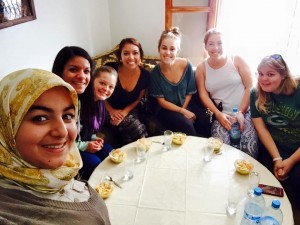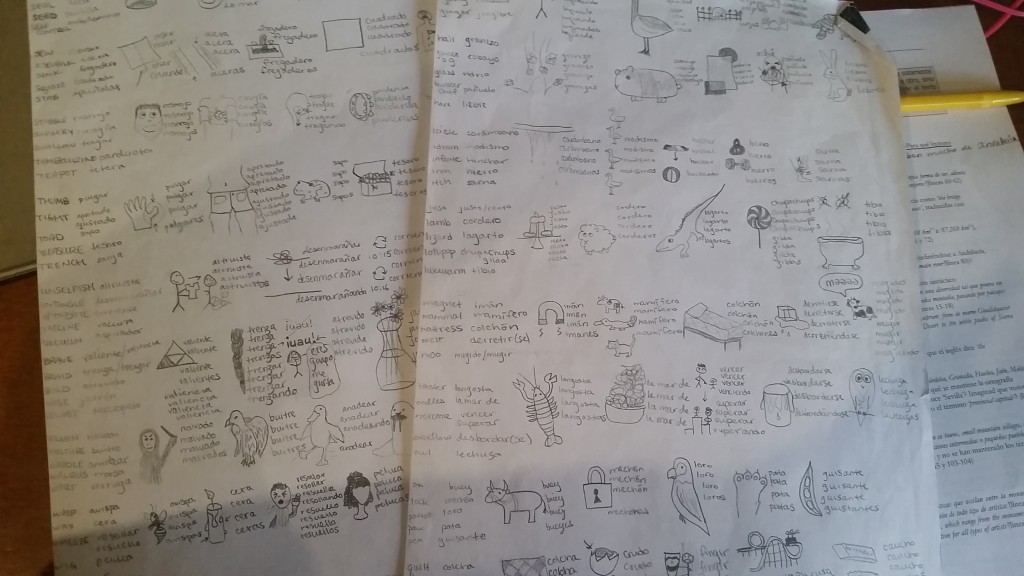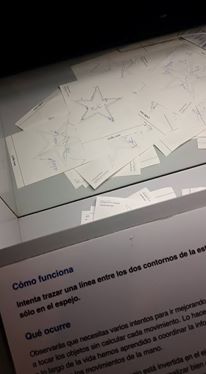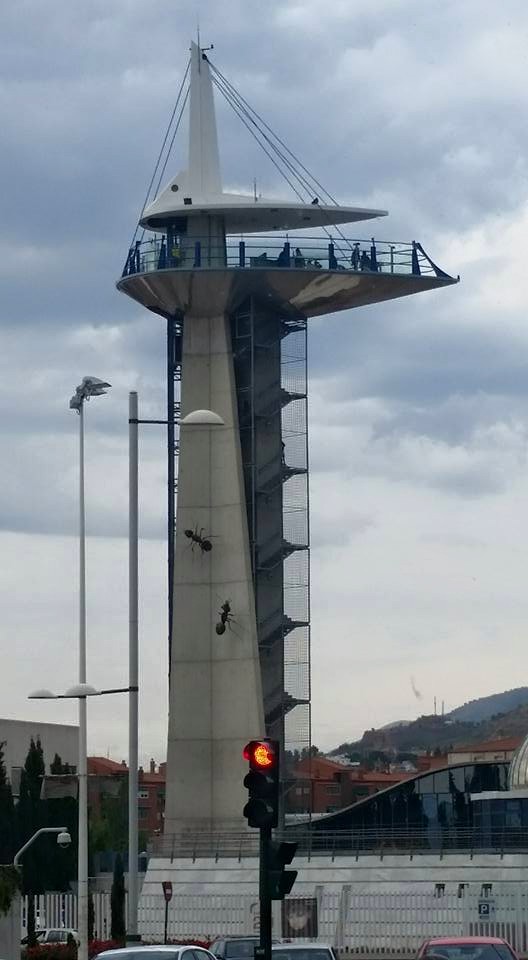The most important reason why I chose to study abroad in Spain was that I would have the opportunity to be immersed in the Spanish language and gain fluency. Of course, moving to a country which does not speak your native language can be very difficult, but the experience will teach you more about the real use of the language than any class could.
When I arrived here in Spain, I was already speaking with a fairly advanced level of Spanish. The first thing we did in the country was take a language proficiency test which placed us in the appropriate level for a summer intensive of Spanish language courses. I tested into level 7 out of 9, so my course was less about the basics of the language and more about learning the intricacies of grammar and vocab and learning to speak more fluidly. These courses helped me a lot to understand on a deeper level the structure of the Spanish language, but like with any classroom environment, they did not teach me to speak like a native.
This is where being in a Spanish-speaking country comes in handy. Spanish is everywhere, and opportunities to practice the language come easily if you simply look for them. I often converse with Spanish students at dinner time in my residence hall, I discuss politics and culture with my program advisor in Spanish, and I even make it a point to try to stick to Spanish when I am talking with my American friends. Unfortunately, my program keeps me in contact with a large number of Americans, and most of my classes contain all English speakers; the temptation to fall back on English is extremely strong! It is very frustrating when you do not quite have the words you need to express yourself when you are speaking a second language, and it is immensely easier to speak in your native tongue, especially when everyone around you has the tendency to do the same. This is especially true at the residence hall where there are Spanish and American students since it is so much easier to group with other English-speakers.
So here is my advice: speak in the country’s language from day one. It will be hard and frustrating, but even when the other English-speakers get lazy and talk to you in English, try to always respond in the local language. I also recommend going out of your way to speak with locals, whether this means conversing with strangers at a bar (be safe!), making friends with local students, or going to “intercambios” (language exchanges for English-speakers learning Spanish and vice versa). You are in a foreign country! You owe it to yourself to use the plethora of resources around you, especially since they are free!
 |
| We had the amazing chance to have lunch with a Moroccan student during our recent trip to Chefchaouen, and I tried to speak to her in Arabic as much as possible. I was only in Morocco for 3 days but I still used all of the available resources to learn during that short time! |
Once I began classes here, I began a project: I decided to learn five new vocabulary words for every day of classes. Every day, I pick five new words that I have either learned in class or just think would be useful in everyday conversation, and I memorize them. To make this process both more efficient and more fun, I draw out each of the words and write the word five times to help with memory retention. I thought this habit would be somewhat helpful, but I have been very surprised to find myself using these words all the time! No matter how random they may seem, they pop up everywhere and it is a great feeling to know exactly what they mean without losing a beat. Now that my Arabic class has begun, I plan to do the same with that language now that I know how useful it is.
 |
| Here are a few weeks of my vocabulary-learning-doodles. I draw out five words and then write the word a few times to drill the word into my mind. |
I also recommend visiting places where you can practice comprehension of the language without the constant pressure of performing. I went with a few of my friends to Parque de las Ciencias, the Granada science museum. We read through all of the information in each exhibit which was written in Spanish, and I learned so many new vocabulary words! Not only was this a fun way to spend a Saturday afternoon, it was also educational - both scientifically and linguistically.
 |
| An example of one of the interactive exhibits at the museum. |
 |
| The strange tower-statue that marks el Parque de las Ciencias. |
One last thing I would like to mention is that completely immersing yourself in the language is also the only guaranteed way to become like a local and gain a true understanding of the country or region’s culture. Language and culture are forever deeply intertwined, so you cannot have a full grasp on one without understanding the other as well. By learning the local colloquial words and idioms, I am learning about the south Spanish people and what is important to them. So stay strong and use your resources! You’ll thank yourself for it later.
Eve Olson is the Fall 2015 CEA MOJO Blogger in Granada, Spain. She is currently a Junior at the University of Utah.







